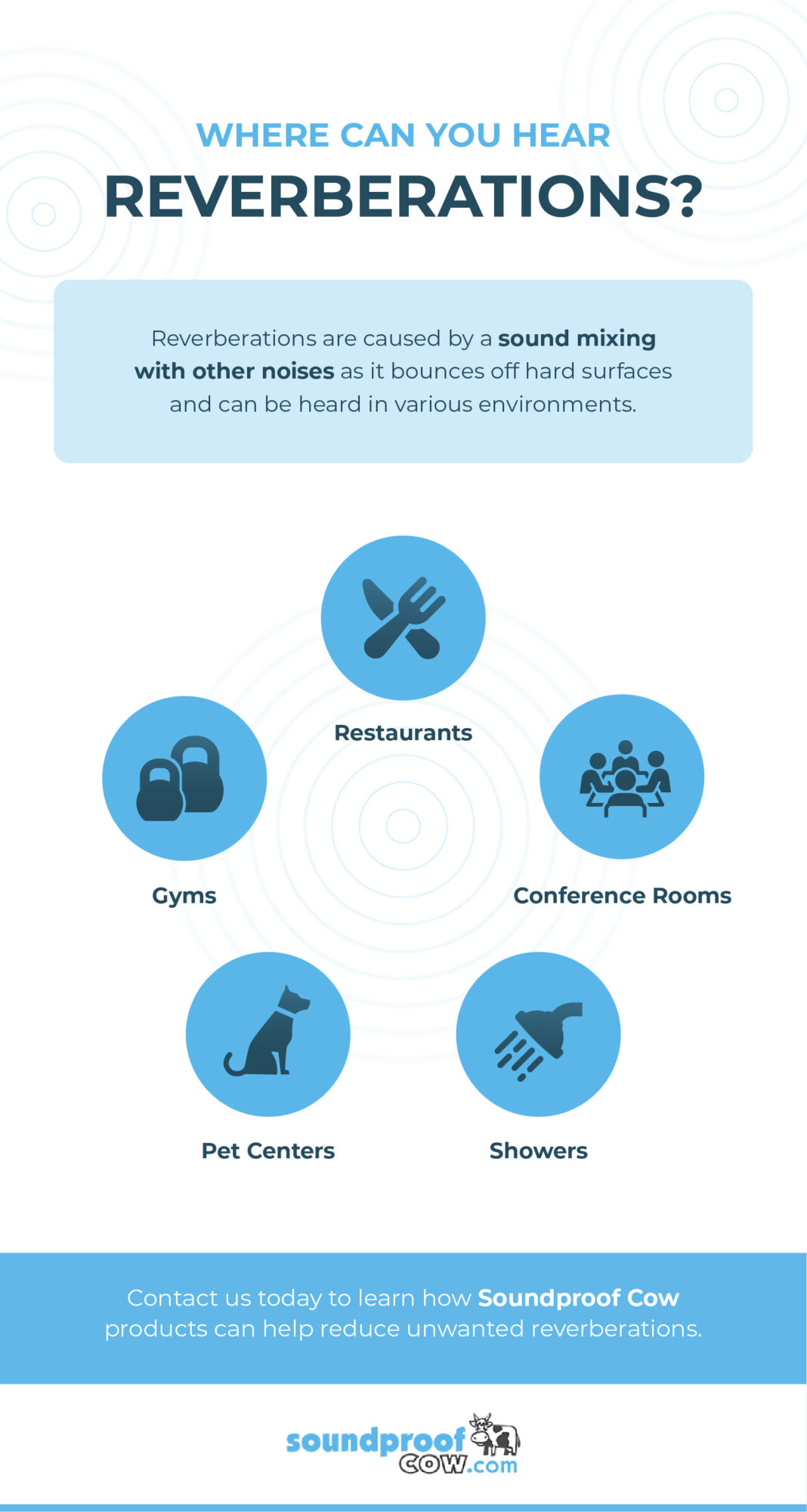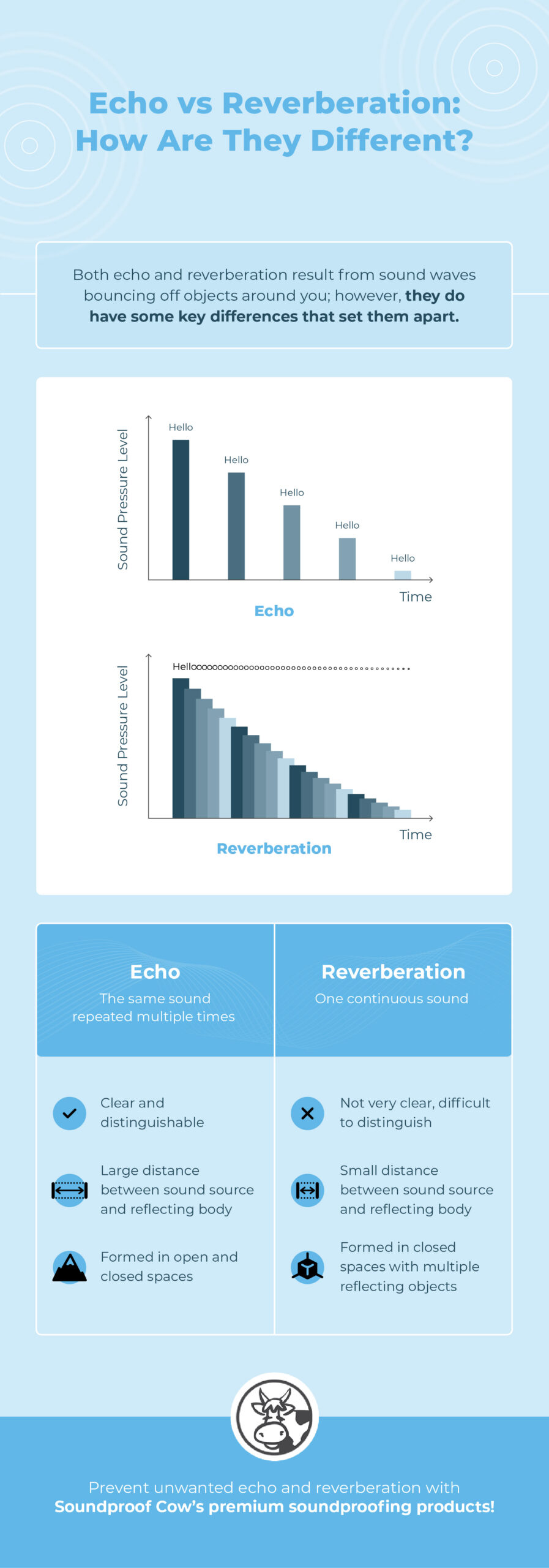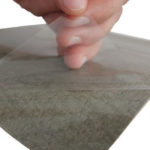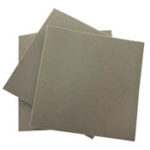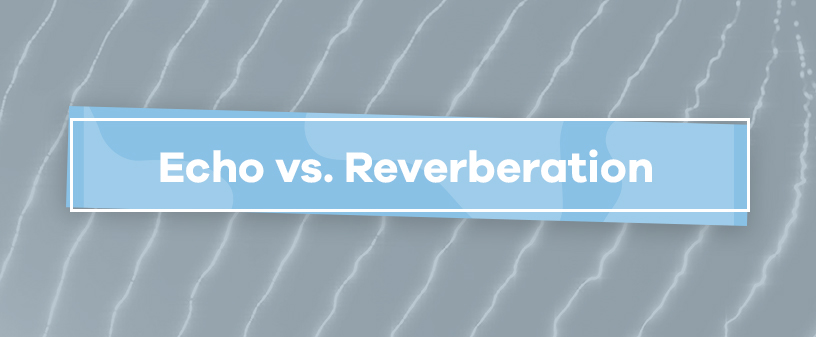
When you find yourself standing in a long hallway and decide to shout out your name, you might just hear your name repeated back in waves. This return of noise is an example of echo. The sound reflects back to the listener as the frequencies bounce off hard objects such as ceilings and walls. The sound of a humming guitar string that continues after plucking is referred to as “reverberation.”
While you might think reverberation is just a fancy way of referencing an echo, it’s not. To find out the difference between reverb and echo, you must first have a general understanding of each sound effect.
Table of Contents
- What Is Reverberation?
- How an Echo Differs From Reverberation
- The Difference Between Echo and Reverberation
- A Common Result of Reflected Noise
- Soundproofing With Echoes and Reverbs
- Fulfill Your Soundproofing Needs at Soundproof Cow
What Is Reverberation of Sound?
Do you ever find yourself singing in the shower and gaining a sense of confidence at your seemingly improving voice? There’s a reason why most people love to sing in the shower: it’s packed with reverberation!
It’s easy to see how people mistakenly confuse reverbs for echoes. However, reverberation is entirely different. When you sing in the shower, your vocal notes don’t ring out in repetition. Instead, your singing produces a more desirable sound because it mingles with the other sounds bouncing off the hard surfaces which surround you.
Many musical producers create synthetic or artificial reverbs that they manually add to a song after recording to optimize the sound produced. In other surroundings, however, reverberation generates unnecessary sounds that can provide excess noise.
How an Echo Differs from Reverberation
When you were a kid, you likely enjoyed yelling your name in a place, such as a valley, where you could anticipate hearing your name repeated back to you in an echoing form. Unlike reverberations, an echo takes longer to return back to our hearing. The sound is not altered or added to, but instead repeated after bouncing off a hard surface such as a wall.
Anytime you hear an echo, the repeated noise sounds like a fainter version of the original utterance or noise. You can measure an echo based on the number of seconds that pass between each repeated sound.
Echo vs Reverberation Differences
So, what is the difference between echo and reverberation? When we hear reverberation, it sounds like a continuous sound, while when we hear echo, it sounds like the same sound repeated multiple times. Both result from sound waves bouncing off objects around you, but reverberation will sound like one sound whereas echo will sound like several individual sounds.
A Common Result of Reflected Noise
While they produce varying results, both echo and reverberation are byproducts of the reflection of sound. In both scenarios, noise reflects off a hard or solid surface in a way that alters the original sound. The primary component that differentiates the two is the amount of time that passes between each repeated interval.
Soundproofing With Echoes and Reverbs
At times, reverb is a desirable outcome that enhances musical production. If you want to limit the amount of reverberation in your space, however, opt for an acoustical foam product instead. Foams absorb the sound to increase the sound dampening properties of your area, in effect reducing the amount of reverberation that affects your sound quality.
When echo is an issue instead, opt for our Vibra Block Sound Deadening Materials to provide added protection against unwanted sounds. Our acoustical foam is also an excellent solution that reduces echoes as well as reverberation.
Fulfill Your Soundproofing Needs at Soundproof Cow
Whether you find yourself dealing with unwanted echoing or reverberation, Soundproof Cow has just the right soundproofing products to provide you with added peace of mind. Tired of your voice ringing out in repetition? Don’t want to deal with unwanted noises affecting your room’s sound quality? Then check out our premium quality soundproofing materials online today!
Learn More About Managing Echoes & Reverb
- What is Reverberation of Sound
- How to Reduce Flutter Echoes
- Ways to Reduce Echoes in Offices
- Reducing Echo in a Room


